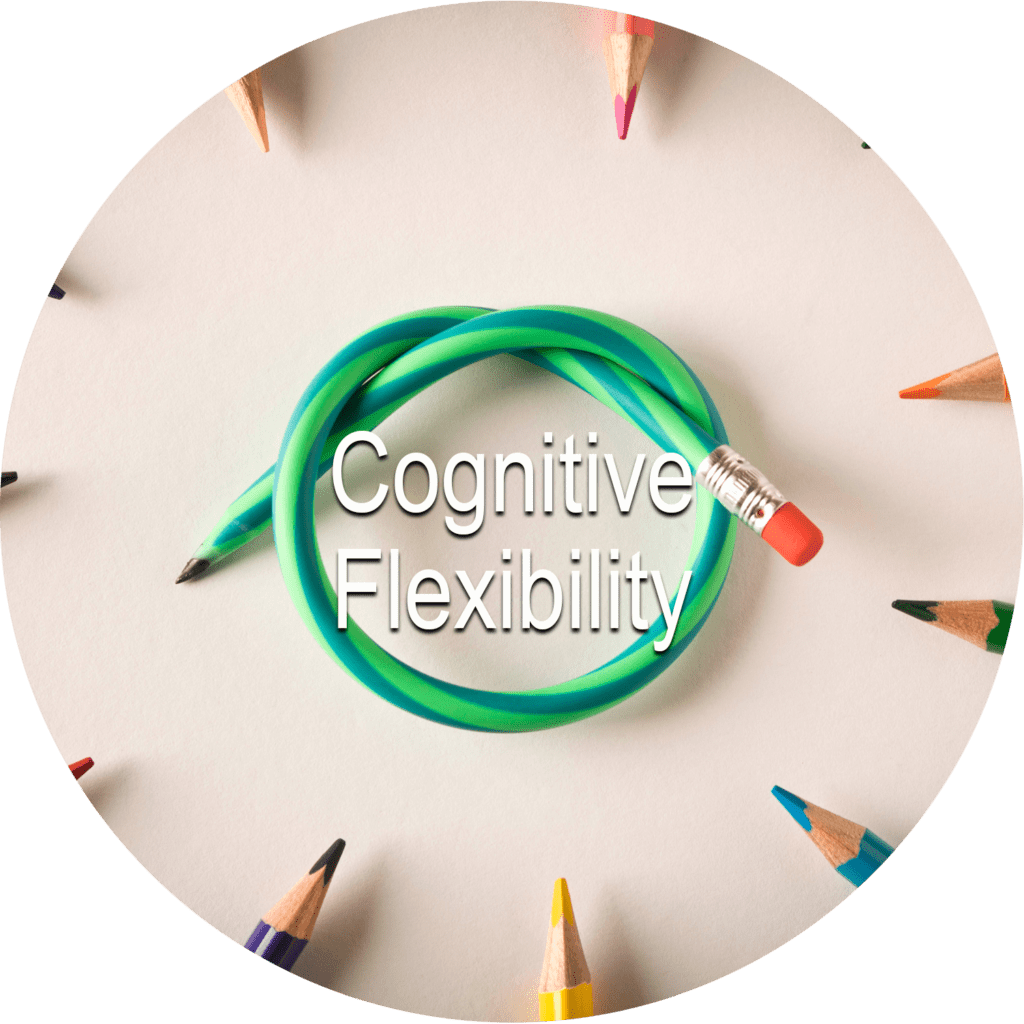What is cognitive flexibility?
Cognitive flexibility is a key aspect of executive function and cognition that allows us to adapt our thinking and behavior to new, unexpected, or changing environments and situations. Here’s a simplified explanation:
- Adapting to Change: Cognitive flexibility helps us adjust when rules or situations change. For example, if you’re playing a game and the rules suddenly change, cognitive flexibility allows you to adapt and continue playing.
- Switching Between Tasks: It also helps us switch our attention between different tasks without getting confused. This is crucial in our daily life where we often need to juggle multiple tasks at once.
- Problem-Solving: Cognitive flexibility is important for problem-solving. It allows us to approach a problem from different angles and come up with innovative solutions.
- Learning: It plays a significant role in learning. When we learn something new, we often need to let go of old information or ways of doing things and embrace new information or methods. Cognitive flexibility makes this possible.
- Resilience: Cognitive flexibility contributes to resilience. When faced with adversity or stress, it allows us to adapt our thinking and behavior to overcome challenges.
How does cognitive flexibility impact success?
Cognitive flexibility significantly impacts success in various areas of life. Here’s how:
- Academic Success: Cognitive flexibility allows students to adapt to different teaching styles, understand complex concepts from various perspectives, and apply knowledge in new contexts. This adaptability often leads to better academic performance.
- Professional Success: In the workplace, cognitive flexibility is crucial for adapting to changes, solving problems creatively, and learning new skills. It allows employees to thrive in dynamic environments and contributes to career advancement.
- Social Success: Cognitive flexibility helps individuals understand others’ perspectives, adapt to different social situations, and respond appropriately to changes in social dynamics. This can lead to healthier relationships and better social outcomes.
- Personal Growth: On a personal level, cognitive flexibility is key to learning from experiences, overcoming challenges, and adapting to changes in life circumstances. It fosters resilience and personal growth.




